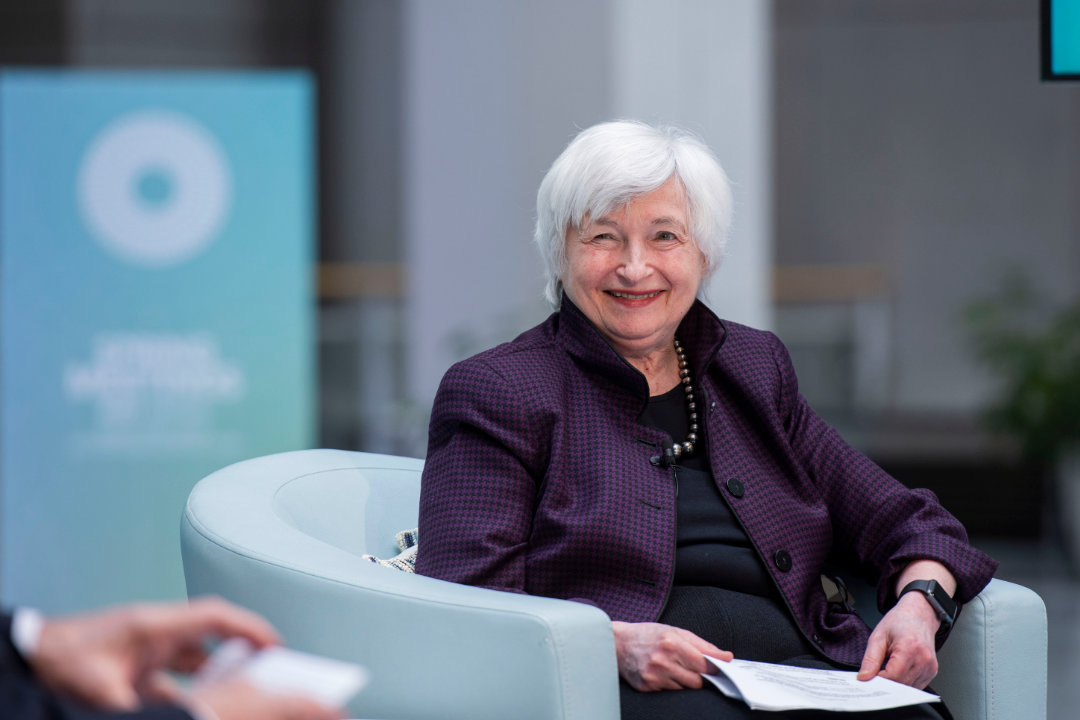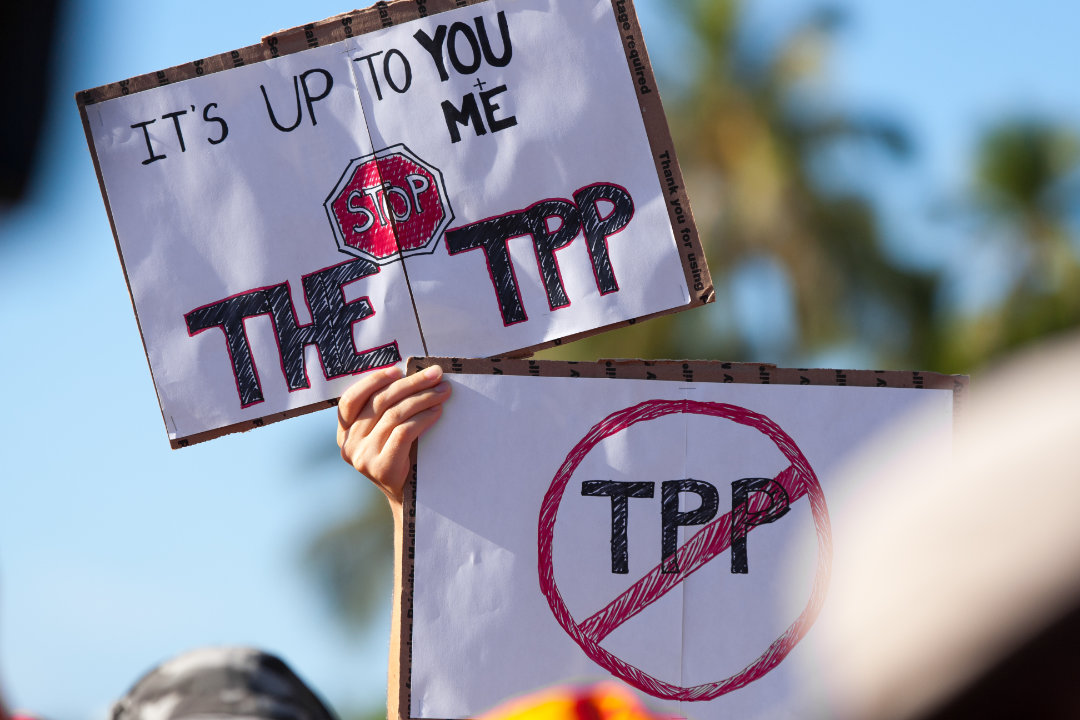| July 30, 2021 | dri.thediplomat.com |
| The End of Geoeconomics? | ||||||||
|
Welcome to the all-new newsletter of Diplomat Risk Intelligence, the consulting and research division of The Diplomat, your go-to outlet for definitive analyses from and about the Asia-Pacific. Each week, DRI Asia Review will focus on a single country, subregion, or theme, based on in-house research, new DRI products, and regional media monitoring. It has four sections. The Big One offers DRI’s assessment of a major security, geopolitical, or economic issue. Babel is analysis based on translations of articles in regional newspapers and media outlets by a DRI team specializing in major Asian languages. In From Our Stable, you will find analysis based on new DRI products, short excerpts from them, or new multimedia features. And finally, each week Digestif will highlight a concept – from science, technology, economics and even philosophy – that will help you up your analytical game, irrespective of your professional interests. This week’s DRI Asia Review is centered around a deceptively simple question: to what extent can geopolitics shape international economic relations? To probe it, we look at recent news about China-U.S. trade numbers and what now looks like an abject failure of the Trump administration’s attempt to tame China through tariffs, on the possibility of Australia-South Korea cooperation on rare earths (a market monopolized by China), and the possibility of the U.S. rejoining the Comprehensive and Progressive Agreement for Trans-Pacific Partnership. And finally, we ask, by way of looking at China’s dramatic economic rise: Can you ever reverse path dependence? | ||||||||
Can China Be Tamed Through Economics? | ||||||||
| U.S. Treasury Secretary Janet Yellen | ||||||||
| — World Bank, Brandon Payne | ||||||||
Despite all the talk of China-U.S. economic decoupling and premonition (and hyperventilation) about a new Cold War in the making, it is business as usual when it comes to trade between the two countries. On July 22, Bloomberg reported that despite Donald Trump’s tariffs designed to temper Chinese exports to the United States and reduce his country’s trade deficit with China, bilateral trade has bounced back to a new record. Noting this development, the news outlet wrote: “Eighteen months after the Trump administration signed the phase-one trade deal [in January 2020], the agreement has turned out to be a truce at best. The US trade deficit has not shrunk, most levies are still in place, and it has not led to negotiations over other economic issues.” Earlier, in the middle of July, U.S. Treasury Secretary Janet Yellen had also noted that Trump’s approach to trade with China had yielded disappointing results. “Tariffs are taxes on consumers. In some cases it seems to me what we did hurt American consumers, and the type of deal that the prior administration negotiated really didn’t address in many ways the fundamental problems we have with China,” Yellen said in a July 16 interview with the New York Times. Meanwhile, it is also crystal clear that Trump’s economic coercion of China has failed to make any difference in modulating China’s political-military stance or caused Beijing to rethink its growing belligerence towards the United States and its allies and partners. Taken together with Yellen’s observations, the limited efficacy of Trump’s China-trade policy leads us to ask: To what extent is economic statecraft useful in dealing with China? While the notion that trade, investment, and control over financial flows could be used by states to further security and foreign policy goals – a complex of ideas that go by the term “geoeconomics” – is not new, China’s own economic statecraft had led many to suggest that the United States also pursue a similar approach. In a 2016 book, former senior American diplomat Robert D. Blackwill and scholar Jennifer M. Harris termed China “world’s leading practitioner” of geoeconomics and admonished the United States as often “reach[ing] for the gun instead of the purse in its international conduct” despite being the world’s leading economy. Granted what Trump was pursuing did not come close to resembling a systematic approach, inchoate as it was in its simple-minded obsession with reducing United States’ trade deficit with China. But at the same time, the very fact that his approach had failed – and as Yellen described, ended up hurting American consumers – shows how tricky economic coercion can be, whatever be the end goal of such action and however unsophisticated (or not) it might be. But the United States is not alone in not being able to wield the purse in modulating China’s behavior, either on the economic or on the security front. Take India, for example. At the height of the (still ongoing) Ladakh crisis, New Delhi – with much fanfare, one adds – banned 59 Chinese apps, including the popular video app TikTok. India also excluded Huawei from 5G tests in May this year after a long period of fence-sitting on the issue. But neither these decisions nor the Narendra Modi government’s strident rhetoric around the need to reduce dependence on exports (including from China, India’s largest goods trading partner) have failed to make a dent in its favor in dealing with the Ladakh standoff. If anything, China-India trade continues to boom: in the first five months of 2021, it grew by a little more than 70 percent (on a year-on-year basis) to $48.16 billion. To riff on strategist Edward Luttwak’s canonical 1990 article on geoeconomics, it seems that the logic of conflict and the grammar of commerce continue to remain on separate courses when it comes to China-India relations. But the interesting thing here is that China too is increasingly finding it difficult to use geoeconomic tools to further foreign policy goals. Its dealings with Australia serve as a perfect case in point. Since May last year as Australia began to vocally raise concerns about China’s behavior (including its meddling in Australian society and politics), Beijing has imposed crippling tariffs on some Australian exports and has held up others on flimsy, spurious, grounds. However, Australia has refused to back down. If anything, it has redoubled its efforts to strengthen its defense and security posture, including by visibly brandishing its military alliance with the U.S. and deepening relations with key American allies and partners such as India and Japan. As Lowy Institute’s Roland Rajah summed up the situation for the Australian Broadcasting Corporation in May this year, “[i]f China's goals were to change Australian policy, inflict economic damage or to send a warning to third countries about crossing Beijing, then I think it's safe to say China has basically been failing on all three accounts.” Bottomline: All in all, not a great season for geoeconomics. | ||||||||
| Asia-Pacific Cyber Risks Stay tuned for a new DRI Monthly Report that surveys the Asia-Pacific cyber risks landscape. The report, drawing on primary and secondary research as well as expert consultations, surveys the geopolitical and commercial forces shaping Asia’s approach towards cybersecurity and the role of the COVID-19 pandemic in consolidating emerging cyber trends. It also highlights areas of critical importance for governments and businesses allowing them to act on tomorrow’s challenges today. | ||||||||
South Korean and Japanese Economies Under China’s Shadow | ||||||||
| — Flickr, fdecomite | ||||||||
Economic statecraft may be on life support across the Asia-Pacific, but that is not to say that geopolitics is not casting a long shadow over how regional powers are thinking about their economies and China’s grip over key resources advanced economies need to fuel their growth. On July 19, South Korean newspaper Chosun Ilbo reported that Australia and South Korea are exploring a plan through which the former would help stabilize the latter’s demand for rare earths and other resources that are key to South Korea’s high-tech economy. According to the newspaper, on July 19 South Korea’s Minister of Trade, Industry and Energy Yoo Myung Hee met with Dan Tehan, Australia’s trade minister, to discuss ways in which such cooperation could happen. It quoted Yoo as saying: “Australia is a major producer of key minerals such as rare earths [and] lithium, and the cooperative potential between both countries in relation with the establishment of the green supply chain is very big.” Recall that China currently accounts for more than 85 percent of the world’s rare earths supply. Chinese firms also dominate the global lithium industry, with more than 60 percent of the world’s lithium production in their hands. Other regional economic giants have their own worries. Writing on July 11 in Yomiuri Shimbun, a leading Japanese newspaper, economist Keiichi Kaya expressed apprehensions about what a new Cold War between China and the United States may mean for Japan’s economy. His solution: “Japan should shift to an entirely consumption-led economy without relying on exports to China.” But that is easier said than done. As Japan stares at a demographic disaster with a rapidly aging population, it is not clear how it would be able to boost domestic consumption and in what way. (Economists have maintained that population composition and final demand, and composition of consumption baskets, are intricately linked.) | ||||||||
Biden’s Asia Trade Policy | ||||||||
| — Flickr, SumOfUs | ||||||||
Perhaps the biggest foreign policy challenge in front of the Biden administration when it comes to the Asia-Pacific lies with whether it would be able to convince regional powers that, beyond all the talk of an Indo-Pacific grand strategy, it can bring substantial positive common goods to the table. A key step through which the administration may indeed be able to do so is to play an instrumental role in shaping the regional economic architecture in throes of China. Recent reports suggest that the Biden administration may be working towards a digital trade agreement for the Asia-Pacific that would exclude China – an idea that seems to be hobbled both by skepticism among many in the region as well as by infighting within the administration. That trade will remain a key test for Biden administration’s Asia-Pacific policy was already noted by James Schwemlein, a former American diplomat, in an article for the inaugural DRI Monthly Report (ungated). Providing an overview of the likely trajectory of Biden’s regional policy on the eve of his inauguration, Schwemlein wrote, “[i]n the United States, resistance to traditional trade deals has increasingly become an area of rare bipartisan coincidence.” Given this mood, to what extent the administration would be able to navigate domestic concerns as well as foreign-policy imperatives remains to be seen. “The U.S. withdrawal from the agreement that became the Comprehensive and Progressive Agreement for Trans-Pacific Partnership (CPTPP) remains a devastating hole in regional engagement,” Schwemlein pointedly noted. However, there may be hope after all. In an interview to Bloomberg Television on July 22, Australian trade minister Tehan hinted that Biden’s proposed digital trade pact could indeed serve as a precursor to the U.S. rejoining the CPTPP, though he cautioned the need to “take one step at a time.” | ||||||||
DRI Monthly Reports are rigorous research investigations that go beyond reportage and commentary for deep-dive analyses of timely topics and emerging trends in the Asia-Pacific. | ||||||||
Path Dependence | ||||||||
| — Cam Miller | ||||||||
History matters. A central concept in complexity economics – the study of the economy as a complex, adaptive system – is that of path dependence whereby a firm or product generates increasing return on scale purely based on positive feedback and contingent events that “lock them” into a “successful” path. Examples include how VHS became the standard for video cassettes over Betamax; or how the QWERTY keyboard, designed in the 1870s, became the universal standard for typewriters and computers. One security analyst has even described al Qaeda leader Osama bin Laden’s rise as an example of path dependence. More to the point: consider how economic decoupling with China is near-certainly a pipe dream. Since Deng Xiaoping initiated reforms in 1979, a chain of events – low labor cost, efficient allocation of resources as well as concomitant growth in consumption of Chinese exports in Western economies – all contributed to China placing itself at the center of a large number of global supply chains. China’s economic (and therefore, military) rise, in other words, was path dependent, contingent on a vast array of factors both small and big. And now that China is where it is, pushing it aside economically can only happen at prohibitive political and economic costs, just like replacing the QWERTY keyboard as a global standard will call for a miraculous near-simultaneous change in the minds of billions. Will you use a keyboard that doesn’t look like the ones you have used all your life, or the ones your mother and her mother used all their lives? | ||||||||
Diplomat Risk Intelligence (DRI) is the consulting and analysis division of The Diplomat, the Asia-Pacific’s leading current affairs magazine. Learn More | ||||||||
For DRI services, contact us at: | ||||||||
Follow The Diplomat on:
| ||||||||
| This newsletter was sent to [[EMAIL_TO]]. Unsubscribe | ||||||||
| Diplomat Media Inc. | 1701 Pennsylvania Ave | Washington, D.C. 20006 | USA | ||||||||
| [email protected] | thediplomat.com | ||||||||
| ©2021 Diplomat Media Inc. All rights reserved. | ||||||||







